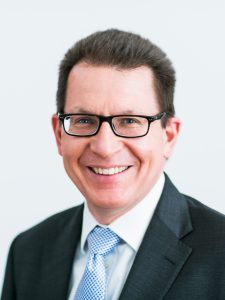“It occurred to me while I was riding my bicycle.” (Albert Einstein). Markus Hill* spoke for FONDSBOUTIQUEN.DE with Alexander Scholz, Telos Gmbh, about the Investor Survey 2023 “Real Estate, Alternative Investments & ESG”. Topics such as private debt, infrastructure, US real estate, and risk management for institutional investors are addressed here as well as the topic of podcasts, “Funds, Bikes & Espressi” and the Wiesbaden Investor Day.
Hill: Mr. Scholz, at the beginning of the year, together with Artis, you surveyed institutional investors about their investment behavior in real estate and alternative investments. What were the main findings of the survey?
Scholz: First of all, I would like to thank all participants very much. The higher the number of participants, the greater the significance of the study. With almost 60 German institutional investors once again taking part, we can justifiably say that the study has a very high informative value. If we look at the results, we can see a certain reluctance on the part of institutional investors – a “catching of breath”, as it were. Especially in the real estate sector, the euphoria of recent years has come to a halt. A significant expansion of real estate quotas is not to be expected – but neither is a sell-out of existing properties. Alternative investments, infrastructure, and renewable energies continue to be in vogue. In private debt, as in real estate, a certain restraint can be felt.
Hill: To what do you attribute the reluctance of investors?
Scholz: A lot has to do with the development of interest rates. Regulated institutional investors in particular had to accept noticeable losses on their bond investments. This has not only reduced investors’ available risk capital but also led to a – passive – increase in alternative quotas. As a result, institutional investors are waiting for their commitments made in previous years to be called up before initiating reallocations. Another effect of the increased yields is that institutional investors can now also meet their commitments with traditional investments such as government bonds, covered bonds as well as corporate bonds. To put it bluntly: I can easily get 2.5% with a mix of 50% government and 50% corporate bonds. Even if this is certainly too short-sighted. A reasonably diversified asset allocation with liquid and alternative investments is still the right approach.

Hill: Are there any other trends that you can also derive from the study?
Scholz: In real estate and alternatives, we can see an “internationalization”. Investors in these segments are also increasingly looking for investment opportunities outside Germany – for example, US real estate. In principle, investors are behaving in the same way with real estate and alternatives as they did in the past with the classic liquid asset classes. Instead of the DAX and REX as in the past, equities and bonds from emerging markets are now normal portfolio components.
Hill: What about the topic of sustainability? Has this moved out of the focus of institutional investors due to market developments?
Scholz: In parts, yes. The high inflation with all its consequences (rising interest rates, recession, etc.) coupled with geopolitical events has pushed the topic of ESG somewhat into the background. Nevertheless, it must be clearly stated that asset managers who do not seriously address the issue will have a difficult time winning new mandates in the future. The supervisory authority alone will take care of this through its requirements – such as the 8th Amendment Act for SGB IV investors. At this point, I would also like to refer to a videocast, in which the results of the study are discussed in more detail. Thanks for the moderation of the roundtable, I was very pleased about the interesting exchange of ideas on the results of the study with Sebastian Thürmer as well as on the topic “USA & Real Estate” with Martin Krause and Martin Stoß from BVT Holding. Investors who are interested in the study are welcome to contact us at info@telos-rating.de. We will certainly also talk about some of the results of the study at our joint panel in Frankfurt am Main on July 7. I am looking forward to the discussion with Dr. Dominik Benner (Benner Holding GmbH), Florian Schmitt (VBG Invest AG), and Jan-Paul Becker (Jan Paul Becker Institut GmbH). There we can also talk in more depth about other topics such as due diligence, performance, returns, and the current challenges of family offices when investing in liquid and non-liquid assets.
Hill: What other strong current do you perceive among institutional investors?
Scholz: The year 2022 has left deep marks on portfolios. In this respect, the topic of risk management is gaining in importance. When asked what institutional investors value when selecting managers, the criteria of risk management was mentioned most frequently, ahead of the performance. Other important factors are transparency, communication, and customer service. The cost factor plays a much smaller role than in previous years.
Hill: That’s interesting. Can you say that quality comes before price?
Scholz: Ultimately, yes, although this certainly does not mean that investors will now accept any price. In any case, it is worth analyzing the quality of processes and risk management in detail when selecting an asset manager.
Hill: You mentioned the very challenging environment for investors. What specifically are you proposing to investors?
Scholz: We at TELOS do not make any concrete investment recommendations. But perhaps investors will find a few suggestions and ideas at the Wiesbaden Investor Day on June 22. Further information is available on our homepage (www.telos-rating.de) under the heading “Events”.
Hill: Let’s leave the world of the capital markets. How did the spring go in sporting terms?
Scholz: With the weather this spring, I could have switched to water sports. The rain and the low temperatures obstructed the works of my plans. Even a planned “training camp” with our small team “Funds, Bikes & Espressi” (at this point I greet Stephan Jacobs from Active Fundplacement, Peter Kerger from MBMs/GreenVesting, and Olaf Struckmeier from Bike Union) in mid-May at Lake Garda fell through. In this respect, the season start was modest, but I hope for a nice summer with nice tours.
Hill: Thank you very much for talking to us.
Markus Hill is an independent asset management consultant in Frankfurt am Main.
Contact: info@markus-hill.de; Website: www.markus-hill.de
Event notice “14th Wiesbaden Investor Day” (6/22/2022)
